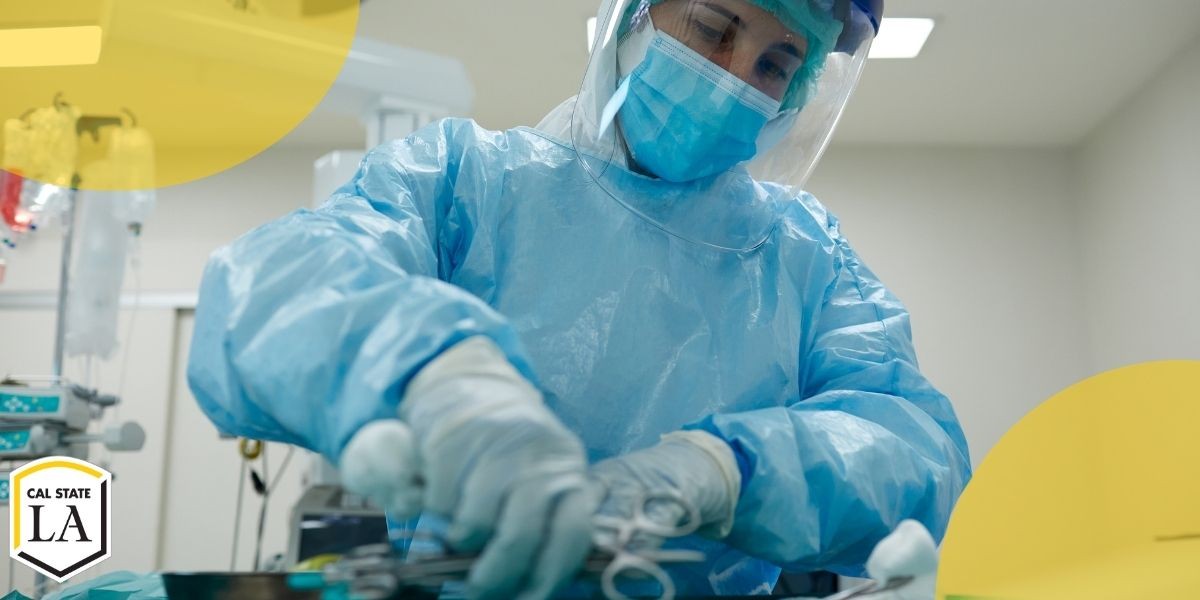A physician assistant, or PA, is "a medical provider who is licensed to diagnose and treat illness and disease and prescribe medication for patients." Working under a written agreement with a licensed doctor, PAs make clinical decisions and provide a range of diagnostic, therapeutic, preventive, and health maintenance services. The PA is trained to represent the MD doctor and act on his or her behalf, as part of an integrated care team. The qualifications and scope of practice of PA and MD differ. Consult the Pre-Medical brochure and this link: PA vs MD: Understanding the Differences — My PA Resource

PA EDUCATION AND TRAINING
To become eligible to practice the PA profession, one needs to complete a physician assistant program, which usually spans 27 months of education, depending on the program structure. Some PA programs consist of 3 academic school years, but there are also 4-year programs and options for part-time education. During the first academic year, most courses will be taught in a classroom setting, covering introductory courses on medical science subjects, including: anatomy, behavioral sciences, medical ethics, pharmacology, physical diagnosis, physiology. In the second academic year, the program shifts to medical and surgical disciplines, such as emergency medicine, family medicine, general surgery, gynecology, internal medicine, obstetrics, pediatrics, psychiatry. PA students will also gain first-hand experience in the profession, applying what they learned in the classroom and lab settings. A PA supervises this pre-graduate clinical practice. Some programs also offer courses on administrative and non-clinical aspects of the PA profession, such as healthcare delivery system concepts, quality improvement, billing and coding, licensing, medical literature, etc. Upon graduation from a PA program, the students will possess a master’s degree and have completed the first step of their road to becoming a licensed PA.
The next step would be to take the Physician Assistant National Certifying Examination, get a passing mark, and be licensed by the National Commission on Certification of Physician Assistants. This license, however, needs to be renewed periodically for PAs to continue practicing their profession. The renewal process involves taking and passing a comprehensive exam every 10 years, as well as completing 100 hours of continuing medical education every 2 years. PAs can also advance their professional ventures or focus on a particular specialization by gaining more knowledge and molding their skills through taking additional courses, attending boot camps or additional programs, and the like.
The PA role has been shaped by years of experience and has its roots as far back as the 1600’s, when Peter the Great introduced “feldshers” into his armies as military medical assistants. Throughout modern history one can find references to non-physicians providing healthcare, especially during wartime. For example, during WWII the U.S. Surgeon General assigned specially trained "Battalion Surgeon's Assistants", whose function was very similar to that of today's PAs.
CASPA is a service of the Physician Assistant Education Association (PAEA), the only national organization representing physician assistant (PA) educational programs since 2001. CASPA simplifies the PA school application process by allowing you to apply to multiple programs with only one application. Many accredited physician assistant programs participate in CASPA each cycle. These programs are accredited by ARC-PA. The physician assistant programs that do not participate in CASPA handle their application processes separately. Programs that use CASPA and have applied for but not yet received accreditation are considered "developing" programs. If you are applying to a developing program, please be aware that CASPA does not offer application refunds in the event your program fails to obtain accreditation.
Starting your CASPA application - Liaison (liaisonedu.com)
PRE-REQUISITE COURSES
Successful completion of all general education requirements
Entrance Exam: Some programs require GRE and the GPA Mean for admitted students: 3.5. Clinical Experience is required most PA programs. Clinical experience can be completed through working as an EMT, Phlebotomist, Certified Nursing Assistant (CNA), Medical Assistant (MA), Respiratory Therapist, Medical Scribe and COPE Health Scholar. Having at least 1,000 hours of experience in any of these professions is strongly recommended, and most applicants have significantly more. This is not a comprehensive list, please refer to your preferred program's website
- BIOL 1100 - Principles of Biology I
- BIOL 1200 - Principles of Biology II
- BIOL 2010 - Human Anatomy and Physiology I
- BIOL 2020 - Human Anatomy and Physiology II
- MICR 3100/BIOL 3100 - General Microbiology
- CHEM 1100 - General Chemistry I
- CHEM 1110 - General Chemistry II
- BIOL 3400 - Cell Biology and Genetics
- MATH 2740 - Introduction to Statistics or BIOL 3000 - Biostatistics
- PSY 1500 - Introductory Psychology
- CHEM 2200 - Organic Chemistry I
- CHEM 2201 - Organic Chemistry Laboratory I
- CHEM 4310 - Biochemistry I
- Medical Terminology - not offered at Cal State LA